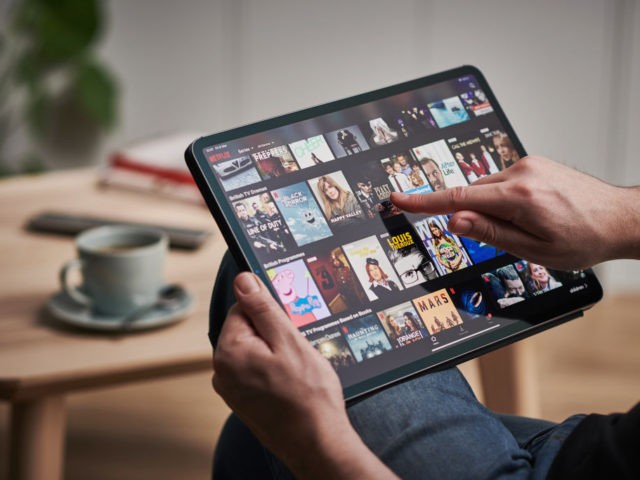Wealthy stars in the British entertainment industry have called for the government to impose a “gadget tax” on electronics in a bid to have the public further subsidise the arts.
Even though the UK public already forks out some £3.52 billion per year to prop up the BBC through a mandatory television tax known as the licence fee, Olivia Coleman of The Crown fame, has backed a proposal for Brits to pay more for their electronics to support the arts during the Chinese coronavirus pandemic.
Colman — who is worth an estimated six million dollars — is joined by the likes of Harry Potter actress Imelda Staunton and artists including Sir Frank Bowling, Rachel Whiteread, Yinka Shonibare among others in calling for the creation of a “Smart Fund” for artists in an open letter published in The Times.
The so-called “gadget tax” would raise taxes on electronic goods such as smartphones, laptops, and PCs by one to three per cent in order to raise £300 million in subsidies for the arts. Should the tax go through it could add to the ever-growing bill for the British taxpayer, who will be footing the bill for the expenses incurred during the lockdown for years to come.
The organisers of the scheme asserted the public would not actually notice the price of devices increasing, because the money would be collected directly from tech firms. Evidently, the group of artists believe companies wouldn’t simply push the slight price rise down onto consumers.
One of the main backers of the plan, chief executive of the Design And Artists Copyright Society, Gilane Tawadros said: “Working with the tech industry and innovators in this sector, we want to support creators and performers, to rebuild and enable the UK’s world-leading cultural heritage, tourism and creative industries and contribute to its soft power and international standing.
“It’s not going to be given to big companies that produce content like Netflix, but to the people who have been really badly affected by the impact of Covid. We’ve got a lot of work to rebuild the economy and this is zero cost to the government. We need to level up with other countries around the world,” Tawadros added.
British Nigerian artist Yinka Shonibare argued on the claim pushed by the group that because some digital devices are used to “illicitly” stream content, they should be taxed: “The Smart Fund is a no brainer. Currently, there isn’t any effective way for creators to be recompensed when their work is downloaded and stored by audiences.
“This remains one of the largest untapped opportunities for creators and performers. The Smart Fund provides a way to invest in creative talent of all ages and backgrounds and their communities.”
The wealthy stars and artists pointed to the economic devastation caused by the coronavirus lockdowns, which have shut down theatres and other artistic venues over the past year. The shutdown has also hit many freelance creatives hard, as their loss of income was in many cases not compensated for by the government.
Some have expressed scepticism over gadget tax, including the trade organisation Tech UK, which said that it sounded like a “new tax” on consumers.
A spokeswoman for the organisation said: “It is an arbitrary tax on consumers that is hugely bureaucratic to manage, and with no transparency on how funds are disbursed and spent.
“Shoppers buying a new phone or laptop might have a lot of questions about why they should have to pay such additional charges, when they already pay a significant amount of VAT.”
Follow Kurt Zindulka on Twitter here @KurtZindulka

COMMENTS
Please let us know if you're having issues with commenting.